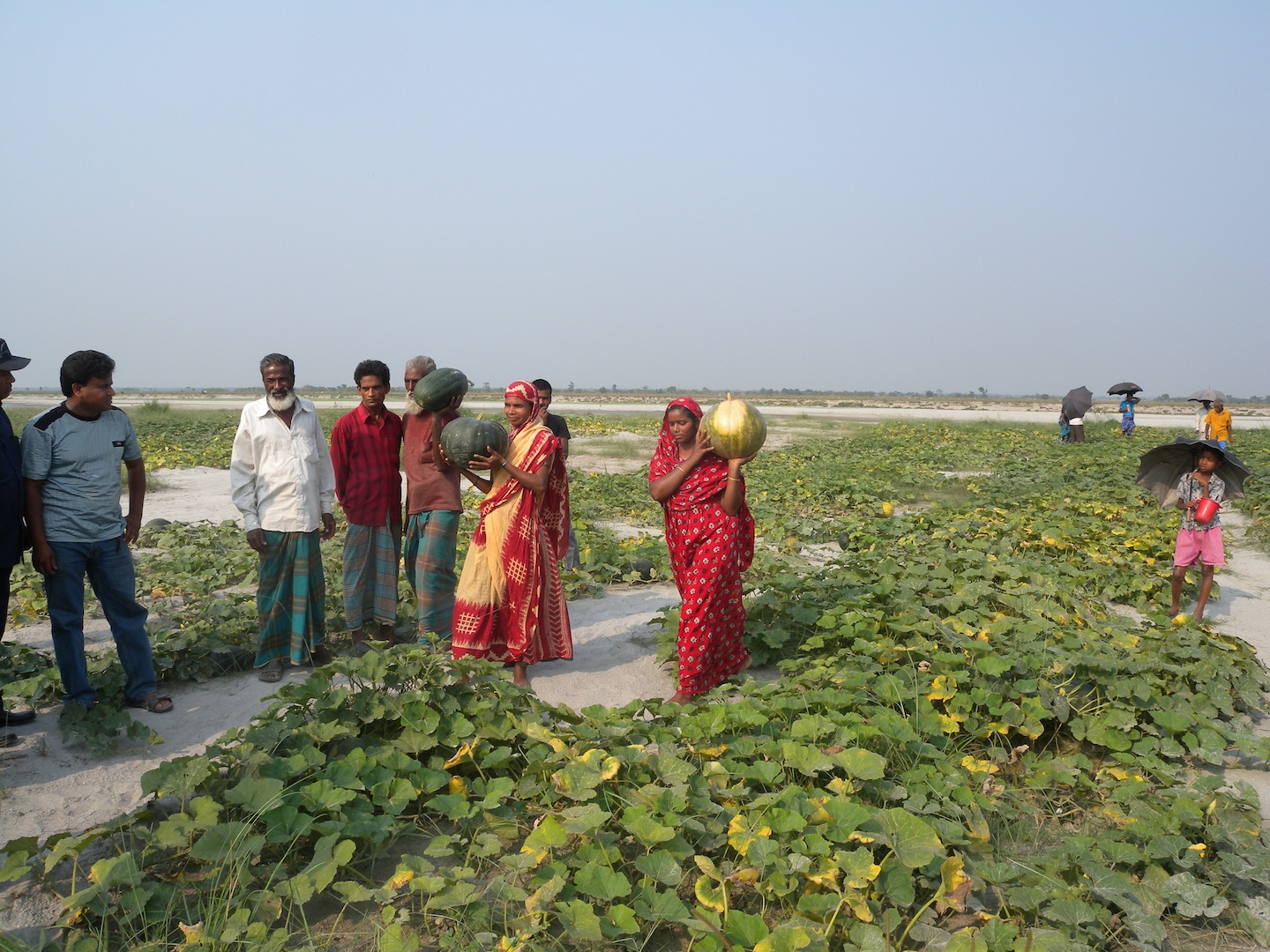Dk. Khoribari is a remote and exceedingly poor village community situated beside the River Tista under Tepa Khoribari Union, Dimla Upazila in Nilphamari District. Over the time floods and soil erosion affected the quality of previously fertile agricultural land in Dhakin Khoribari and food production was increasingly compromised Many of he men and women are day laborers but due to lack of employment prospects, are forced to migrate to different aces in search of work leaving the women and children to struggle at home.
JSKS one of Practical Action Bangladesh partner has worked in this isolated community since 2009 and seeks to address the complex problems in fine with program objectives. PAB began by identifying program participants through a Well Being Analysis (WBA) which assessed socio-economic conditions and overall well-being using a Poor and Extreme Poor scale. Most were landless and lived on beside the river embankment.
With the assistance of JSKS. 18 BHHs (Female 15, Male 3) from Dk. Khoribari formed the group and made a plan to cultivated sandbar cropping (locally referred to as mishti kumra). Pumpkin was selected because it grew quickly and could survive in sandy soil and easily preserved in normal place. The Group Facilitator and PO (Agriculture) select the participants, sandbar area arrange two day training on 20-21 December, 2009 about pumpkin cultivation and distribute input (seeds, inorganic fertilizer. organic fertilizer, irrigation facilities and storage facilities) among the participants.
They identified unused sandbar land but some of this land was owned privately, with the assistance of Group Facilitator private owners were also contacted and approval was given. These initiatives resulted in access to 3 acres of privately-owned land.
In December, the group members received training. sweet pumpkin seeds and technical support from JSKS and PAB. They learnt how to cultivate the seeds in sandy conditions using a new agricultural method through which quality soil could be reached with minimal effort. By placing two seeds in each poly bag on 27 December, 2009 and 6 January. 2010 transfer to PITs, the potential for loss was minimized. The group was encouraged by regular field visits from JSKS and PAB staff that reinforced the techniques taught during the training sessions.
The Participants applied their new skills and planting commenced after the monsoon. Within four months the sandy land transformed into green as the seeds germinated. This outcome inspired many of the women and men, particularly those who had previously doubted the activities’ viability, to assist their views with irrigation. weeding and fertilization.



